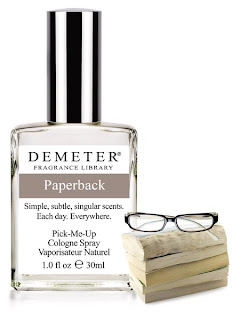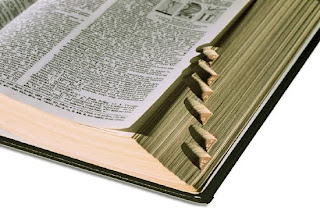Saturday, December 31, 2011
Reading the Civil War

The American Spectator discusses our love of reading about our great war.
From the piece...
Americans seem to have an inexhaustible appetite for everything ever written on the bloodiest episode of our history in which more than 600,000 Americans died on both sides of the conflict over Union, states rights, and slavery. The latter part of the previous sentence has, itself, generated its own body of literature on the true meaning of the conflict. Many experts argued that the meaning or mission of the conflict changed over time as the blood flowed and the stakes rose astronomically. Others maintain that states rights were either a cover for the real issue, slave-holders' rights, or so intertwined with it that they were essentially the same thing.
Friday, December 30, 2011
Kerpow! Women Fighting Back Against Comic Book Sexism

The UK-made, female-driven anthology Bayou Arcana is causing a stir for more than just its haunting images and storylines.
From a piece in the Guardian...
It is one of the more eagerly awaited titles due to emerge from Britain's vibrant independent comic and graphic novel scene. But the "southern gothic" horror anthology, Bayou Arcana, is causing a stir for more than just its haunting images and storylines.
The anthology is the product of a unique experiment that brings together an all-female team of artists with an all-male team of writers – and it is an illustration of how a new generation of female artists and readers is radically changing the face of comics.
"There is a certain sensitivity that you find in women's art that just does not appear in a lot of guys' work," says James Pearson, who edited the anthology, which follows the story of escaped slaves taking refuge in a swamp.
Thursday, December 29, 2011
Shouldn't Amazon WORK with Independent Booksellers?

That's what the Harvard Business Review suggests.
From the piece...
Why can't independent bookstores partner with Amazon to, essentially, serve as showrooms in exchange for a cut of the profits?
This would let Amazon keep enjoying the benefits it reaps from the existence of physical bookstores, but it would also protect that advantage for the long term — because the stores wouldn't be driven out of business. Indies, on the other hand, should welcome such a proposal, on the right terms, as a sound evolution of their business model and because increasing the number of readers increases demand for the product they, too, sell.
What exactly do independent bookstores offer Amazon? First and foremost, they help create demand, through both intelligent handselling (finding the right individual book for the right individual customer) and well-curated displays that draw customers in and stimulate their appetites. While Slate's Farhad Majoo dismisses bookstore clerks "a dubious recommendations engine," most customers still prefer a human with some expertise — whether it's a friend, a book reviewer, or a local shop clerk — saying, "Buy this, not that," to algorithmic recommendations and even online reviews, often the subject of controversy. Researchers have shown that online reviewers exaggerate and that later reviewers are often just reacting to early reviewers — not to the product itself. That's why aggregations ("three-and-a-half stars") are so often not helpful. And as for the algorithm, a recent visit to my Amazon.com homepage revealed more than 50 different products to buy, but only one was something I actually wanted.
In Defense of Cookbooks

The actual book is better than a digital one, notes the Stranger.
From the article...
I'll stop mocking the entire internet in just a moment and get on to cookbooks, but first, more internet ridicule because I'VE DONE THIS SEARCH-AND-COOK ROUTINE HUNDREDS OF TIMES AND IT'S STUPID. Consider searching for chili and clicking the high-ranking sites like Allrecipes.com, which offers even more choices: easy chili, lean chili, "Our Top 20 Chili Recipes," and, I shit you not, "Easy Chili for Men."
I'm not sure whether having a penis makes it possible to cook this gender-oriented chili or to eat it, but I do have a suggestion for Allrecipes.com: Go screw yourself and put that online.
Whether you're venturing out into unfamiliar cuisine (like beef Wellington) or trying to nail home-style classics (like mac and cheese), the correct technique can make or break the finished meal—and you have to eat this stuff, so you don't want to screw it up. You want a concise recipe that takes your hand and guides you. You want cuisine that turns out with finesse, in which the flavors are balanced yet robust. Moreover, you want to know why it turned out well, so you can do it again without the recipe. An archaic cookbook, curated and edited by someone you can trust, can do this reliably.
Wednesday, December 28, 2011
Listening to Mom Through Her Books

One writer finds her mother's 'voice' in her books — in the notes in the margins, the clippings that spill out, the dog-ears, even the pages on which a book opens.
From a piece in the Los Angeles Times...
Talking about books — the metaphors, the layered imagery, the object lessons — was at the core of our communication. When I was very young, she read those books, plucked from those precarious stacks, to me — not just at bedtime but also whenever she encountered a particularly moving passage, a mind-bending premise or a startling turn of phrase. She'd dip at midpage, midthought, the pleasure or surprise shimmering in her voice.
The unusual thread in all of this was that my mother, who otherwise treated her wild garden of a library with white-gloved reverence, had a habit of marking in her books. This I found extremely perplexing for someone who often described herself as an "everything-in-its-place Virgo," who patiently showed us how to create handmade covers to protect a book, how not to bend books backward and break their fragile spines. She'd trace faint pencil notes in the margins of Langston Hughes' poetry, dog-ear the page of an exchange between Laura and Amanda Wingfield in "The Glass Menagerie." Or, next to these lines of Gwendolyn Brooks she simply penciled the word "truth":
What
We are to hope is that intelligence
Can sugar up our prejudice with politeness.
Politeness will take care of what needs caring.
For the line is there.
Tuesday, December 27, 2011
Poetry in Medicine

JAAPA makes a case that poetry should be studied in medical school. Now what rhymes again with myocardial infarction?
From the piece...
Dr. Chen describes a poetry contest organized last spring by Dr. John Martin, a professor of cardiovascular medicine at University College London and a published poet himself. Students from Yale University School of Medicine and University College London Medical School were invited to submit original works of poetry for the contest. First prize (provided by an anonymous donor) was $1,500. You can read the top three selections here.
Dr. Chen quotes Dr. Thomas Duffy, director of the program for Humanities in Medicine at Yale Medical School, as an advocate for poetry in the medical school curriculum: “Poetry opens our minds to asking patients the right questions, while helping us address the emotional demands of doctoring, especially in the formative years.”
The Muses of Insert, Delete and Execute
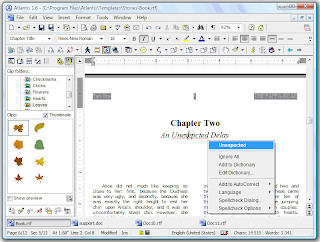
The New York Times looks at the murky history of word processing.
From the article...
The literary history of word processing is far murkier, but that isn’t stopping Matthew G. Kirschenbaum, an associate professor of English at the University of Maryland, from trying to recover it, one casual deletion and trashed document at a time.
Pay no attention to the neatly formatted and deceptively typo-free surfaces of the average Microsoft Word file, Mr. Kirschenbaum declared at a recent lunchtime lecture at the New York Public Library titled “Stephen King’s Wang,” a cheeky reference to that best-selling novelist’s first computer, bought in the early 1980s.
“The story of writing in the digital age is every bit as messy as the ink-stained rags that would have littered Gutenberg’s print shop or the hot molten lead of the Linotype machine,” Mr. Kirschenbaum said, before asking a question he hopes he can answer: “Who were the early adopters, the first mainstream authors to trade in their typewriters for WordStar and WordPerfect?”
Monday, December 26, 2011
Sunday, December 25, 2011
Saturday, December 24, 2011
Home to Hipsters Since the 1950s

Last week saw the death of George Whitman, legendary founder of the Parisian bookshop Shakespeare and Company. Tim Martin examines the enduring appeal of the place Beckett and Ginsberg hung out in the Telegraph.
From the article...
Like much of contemporary Paris, Shakespeare and Co is something of a heritage industry, cheerfully selling an idea of itself to customers eager for a glimpse into the past. You can get your purchases stamped with the Shakespeare logo at the checkout, browse a selection of books about the bookshop and take a look at the latest clutch of hipsterish American twentysomethings living out the perennial literary fantasy by sleeping in the library upstairs.
Things have changed somewhat in the shop over the past decade, since Whitman bowed out from the daily running of the business in 2006 and put his daughter Sylvia in charge. Under her direction, Shakespeare’s has made its way into the modern age: it continues to put up its quota of six “tumbleweed” writers, for whom the criteria of admission remain to write a page-long autobiography and do a couple of hours on the shopfloor each day, but some time ago it took the controversial step of installing credit card machines and a telephone, taking good care of its cashbox, ordering in regular consignments of hip American paperbacks and adjusting its prices to reflect the contemporary realities of bookselling.
Friday, December 23, 2011
Thursday, December 22, 2011
What About Dust Jacket Restoration?

Should you do it?
From a piece on Booktryst...
The community of book collectors, as usual, had the final word. No good. A book with its dust jacket present will always bring a premium. But a book with a restored dust jacket will fetch less than the same book with an unrestored jacket. "Untouched" remains the standard, whether binding or jacket. The less monkeyed with the better.
One reason why the community has put the hex on restored dust jackets is simply because DJ restoration has become so fine that it is often extremely difficult to tell if work has been done. When the dust jacket to a highly desirable and expensive first edition is rarer than the book itself, i.e. The Great Gatsby, and its presence increases the value of the book tenfold, the temptation to get clandestinely creative is high.
As long as the dust jacket is clearly identified as restored, no problem. But books with restored DJs and unidentified as such by the unscrupulous are floating around the marketplace and dealers and collectors have to pay special attention.
Kind Reader

There's a new column on Barnes & Noble Review in which contributor Jessa Crispin answers readers' questions on life and love with her library as the ultimate arbiter.
From the column...
I hate Seattle, but I also hate Ohio (where I grew up) and New York City (where I went to school) and Athens, Georgia (where my brother lives). Is it me? Also, how should I decide where to live next?
Oh, of course it’s you.
That doesn’t necessarily mean it’s a bad thing. But if at this point in your life you’re still looking for a place to call “home,” a place that makes you feel safe and snug, a place whose map is imprinted on the inside of your skull, well... Perhaps the more likely thing is that you’re one of us rootless types, one who feels she is just as connected to the hotel room she’ll occupy for 48 hours as the place of her birth.
The problem is that most books about drifters -- your Beats, your bohemians, your nomads -- don’t understand, or really get at, the longing that can come with someone without a permanent address.
Wednesday, December 21, 2011
The Marks We Leave on Borrowed Things
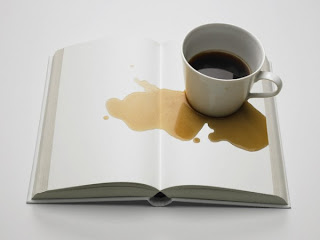
HTML Giant discusses library books and what we do to them.
From the post...
I guess I’ve changed. These days I feel like the gunk between the pages — the pubic hairs, the tomato sauce, the coffee stains and pages malformed by water, dried into interlocking waves of sticky paper — is special. I can get a clean book no one else has really handled from the bookstore, from Amazon. I like the weird smell of library books, and the way the smell differs. I like seeing how people ruin what they borrow. I like knowing what I’m reading, this object, has been read some dozen times before. I like imagining how these other people (hands, mouths) felt when they saw what I’m seeing.
I wanted to do a whole series reviewing the stuff I found in the spines and stuck between the pages of the books I borrowed. At first the plan was going well. People really messed up a copy of Dennis Cooper’s God Jr., for instance. But ever since then it’s been slow going. Dull stuff. A couple hairs here and there. That’s all, though. The books are clean. The Iowa City public library is maybe weirdly vigilant about the appearance of its books. Their patrons are some of the worst I’ve ever seen — loud, inconsiderate, entitled — but the books are usually in good shape. It feels perverse to wish they weren’t. Still, though, I do. I miss the human residue.
The Notebook - The Musical?

Indeed.
From a story in the Guardian...
According to entertainment blog Zap2It, the musical is being written by One Tree Hill star Bethany Joy Galeotti and Ron Aniello, who staged a reading in North Carolina two years ago.
"We're still in development of this process," Sparks explained, "but the best way that I've always found, and it's what I've done in Hollywood or whether it's working with the publishers that I've worked with for a long time, is to work with people that you really trust, who understand what it's about and they want to take that and mold it into something new."
The Notebook was Sparks's first published novel and centres on 80-year-old Noah reading his diaries to his wife in a nursing home. They detail his experiences of love as a youth. Aged 31, having just returned from military service in the second world war, Noah is reunited with his ex-lover Allie, sparking a passionate affair.
Tuesday, December 20, 2011
Generation E-

Far from killing off the book, the digital age is proving a boon to innovative publishers and authors, many of whom are using new technology to breathe life back into old ideas. The Guardian surveys four of the most interesting ventures.
From the article...
From the yoking together of these two ideas – online pledging in the music business, and old-fashioned subscription publishing – Unbound Books was born. The site, launched last May, acts as a forum for authors to pitch books directly to readers, who, if they like the sound of a project, commit money right away, before the book has even been written. Each book has a target number of pledges it must receive to be viable (generally between 500 and 1,000). When you click on a book on the site, you are shown how many pledges it needs in total, and the percentage it has so far received. You can then pledge your support at a number of levels: from buying the ebook (generally £10), through purchasing the hardback (usually £20) or a signed copy (£50), all the way up to being invited to the launch party (typically £150) or, sometimes, going on an excursion with the author.
Pollard points out that although pledging involves handing over actual money, supporters aren't taking a risk, because if the book doesn't receive the required number of pledges, the project is scrapped and everyone gets their money back. Meanwhile, the publisher avoids exposing itself to upfront advances. As Pollard puts it: "We know before the author bothers to write the book that there's enough money to make it worthwhile." The lack of risk means that Unbound can spend more on production (its hardbacks are typically three times more expensive to produce than a conventional publisher's) and can pay authors a higher percentage of royalties.
Monday, December 19, 2011
50 Things I've Learned about the Writing Life

The list, care of Robert McCrum at the Guardian.
From said list...
36. There is no substitute for Harold Pinter.
37. Many published writers are rather less fun than generals, or even bishops.
38. Ebooks are not the end of the world.
39. Small publishers are small for a very good reason.
40. Great booksellers are a bit mad.
41. There are probably just 100 novels you really must read.
Jane Austen - 200 Years On

A literary historian argues that the author's genius lies in the way she holds up a mirror to each generation.
From a piece in the Guardian...
The Jane Austen brand has global reach. There are booming Austen societies in Europe, Australia, New Zealand, Brazil and Argentina. Austen's novels have been re-imagined as California high school romcoms, Bollywood extravaganzas and most recently as a comedy zombie shocker. In Britain, Pride and Prejudice is one of the nation's favourite novels (second only to Tolkien's Lord of the Rings in the BBC's Big Read of 2004).
Teenage readers and moviegoers might think that Austen has always been adored. In fact, although she made some money in her lifetime, her tombstone does not mention her novels. By the 1820s, with the books out of print and remaindered, it looked as if her short-lived reputation had died with her. The Victorians found her passionless and parochial. "Why do you like Jane Austen so very much?" Charlotte Brontë remonstrated with the critic George Henry Lewes. "Anything like warmth or enthusiasm, anything energetic, poignant, heartfelt, is utterly out of place… I should hardly like to live with her ladies and gentlemen, in their elegant but confined houses."
Only from the 1870s did Austen's critical fortunes revive, courtesy of a saccharine biography by her dull nephew, James Edward Austen-Leigh, and the twee chocolate-box illustrations of the Macmillan edition of her novels.
Sunday, December 18, 2011
The Channeling of the Novel

The New York Times explores the explosion of television shows (particularly on HBO) that have come from novels.
From the article...
Novelists have long lusted after movie adaptations. “It’s extra income,” says Egan, who’s seen one of her previous books become a movie and another get stuck in development. Recently, however, authors have found themselves pursued less by Hollywood than by HBO. The cable network has optioned a number of widely recognized literary works, including Karen Russell’s “Swamplandia!,” Chad Harbach’s “Art of Fielding” and Mary Karr’s memoirs. “At some point in the last year,” says Michael London, the indie-approved producer whose Groundswell Films brought “Goon Squad” to HBO, “everyone in the business had an epiphany that the DNA of cable television has much more in common with novels than movies do.”
This makes sense. After all, what people like about post-“Sopranos” cable TV — its complexity, its density, its moral ambiguity or even depravity — lines up with what they like about literary fiction. (It doesn’t hurt that Hollywood seems less interested than ever in serious fare.) What may be surprising, though, is how many authors are working on their own shows. “It’s not just that novels make good adaptations,” London says. “It’s that novelists make good adapters.”
Saturday, December 17, 2011
They Put the Face on an American Sound
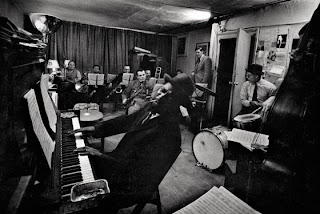
The book Blue Notes in Black and White highlights jazz photography.
From a review in the New York Times...
Instead, this occasionally powerful but uneven book is a selective and essayistic history on how the still-image camera conferred cultural legitimacy to jazz as black music, for the most part between the late 1930s and the mid-1960s. It analyzes the early photo spreads on jazz in Life magazine, as well as the writing and the layouts; the development of bebop, with its own visual code, as rendered by the jazz press; and the diverging looks of late-1950s jazz as suggested by album covers released by independent labels in New York and Los Angeles. (Shadows and cigarette smoke versus sunlight and oceanfront.) It deals at length with Dizzy Gillespie, Miles Davis and Sonny Rollins, and how pictures of them on and off stage helped build or maintain their personas. Slide Show: More jazz images.
The book focuses on art photographers, or photojournalists with a serious interest in photography as art, and it shows you their relationships and lines of influence.
The Co-Creator of Captain America Dies

Joe Simon has passed away at the age of 98.
From an obituary in the New York Daily News...
"Wherever I was, I'd always be thinking up new characters - the idea for Cap came to me while I was riding a Fifth Ave. bus," Simon, who co-created the character with artist Jack Kirby, told The News earlier this year, as the major motion picture featuring their hero hit theaters.
"Captain America was designed to be the perfect foil for the Führer, and the Nazi Bund didn't like the fact that we were making fun of their great leader."
When the first issue hit the stands in March 1941, readers snapped up almost a million copies of Captain America Comics - which featuring the shield-carring hero punching Hitler square in the jaw.
“Tall, deep-voiced, cigar smoking, always armed with a quip or a wise crack, Joe Simon was my first boss at Marvel which was then called Timely Comics,” says Stan Lee. “He was an incredibly talented artist as well as a writer... I couldn't have had a better mentor.”
Charlotte Bronte Manuscript Sets Record at Auction

A piece written when she was 14 went for $1.2 million. I wonder if my short story, written at 14, about a pitchfork that comes to life and murders people will make that much when I'm dead and gone. Stay tuned!
Friday, December 16, 2011
Don't Support Your Local Bookseller

Buying books on Amazon is better for authors, better for the economy, and better for you.
So says a recent piece on Slate.
From said piece...
All of which is to say that I was primed to nod in vigorous agreement when I saw novelist Richard Russo’s New York Times op-ed taking on Amazon’s thuggish ways. But as I waded into Russo’s piece—which was widely passed around on Tuesday—I realized that he’d made a critical and common mistake in his argument. Rather than focus on the ways that Amazon’s promotion would harm businesses whose demise might actually be a cause for alarm (like a big-box electronics store that hires hundreds of local residents), Russo hangs his tirade on some of the least efficient, least user-friendly, and most mistakenly mythologized local establishments you can find: independent bookstores. Russo and his novelist friends take for granted that sustaining these cultish, moldering institutions is the only way to foster a “real-life literary culture,” as writer Tom Perrotta puts it. Russo claims that Amazon, unlike the bookstore down the street, “doesn’t care about the larger bookselling universe” and has no interest in fostering “literary culture.”
That’s simply bogus.
Of course the essay is begging for responses. Here's one from Slate.
A Centuries Old Mystery Uncovered in the West Virginia University Rare Book Room

A poem. Canterbury Tales. King Edward VI. Intriguing!
From a piece in WVU Today...
She and the students headed to the Rare Book Room on the sixth floor of the Downtown Library where Treharne happened to open a 1561 edition of works by Geoffrey Chaucer that includes The Canterbury Tales.
She opened it, and saw the Latin poem pasted in the back of the book.
From that moment, time works backward.
The investigation
To discover the origins of this poem, all Treharne has is the Latin, her own research experience and a name. As a medievalist, Treharne rarely studies anything more recent than 1200 C.E., but she’s interested in what the elegantly handwritten words signify.
She did what many folks in the 21st Century do as the first step of research, even if it involves the 16th Century. She Googled it.
She assumed what was tucked in the book was only a copy of a known poem. But it wasn’t on the Internet. None of the scholars she spoke with had heard of it.
The name in the front pages of the book and at the base of the poem is Elizabeth Dacre. And Treharne’s translation of the poem revealed another name – the person for whom the poem was written: Anthony Cooke, tutor to King Edward VI, son of King Henry VIII.
So Treharne searched for Elizabeth, from the U.S. and in England.
And the story she found is as unconventional as its heroine.
Thursday, December 15, 2011
Subscribe to:
Posts (Atom)







